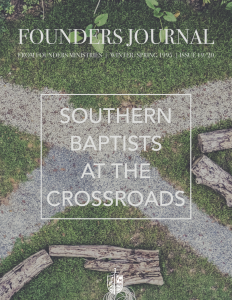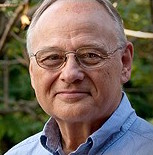One of the greatest jewels in Southern Baptist history is James Petigru Boyce. The beloved founding President of Southern Baptist Theological Seminary also served as its first Professor of Theology. This reprint of his class notes, developed gradually while using Hodge’s Systematic Theology, was the theological textbook for the first fifty years of Southern Seminary’s pastoral graduates.
F. H. Kerfoot, Boyce’s successor, revised the work in 1899 for his own theological students, saying, “Dr. Boyce was without doubt the greatest leader that Southern Baptists have ever had.” Its modern reprinting in the original version has found its way into the hands of thousands of students and pastors, many of whom rejoice in its biblical and theological treasures. In a day of revived interest in the theological heritage of Southern Baptists, Boyce’s Abstract serves as a major touchstone of historic SBC orthodoxy.
The format follows an expanded outline of traditional topics in systematic theology. Its fullest development was sacrificed upon the altar of presidential fundraising and administration. Further, topics such as Scripture and ecclesiology were neglected, being covered in other seminary courses. According to William A. Mueller (A History of Southern Seminary), Boyce considered his work not a masterpiece for the learned, but a practical textbook for pastors and students, even those without seminary training. However, these expanded outlines, replete with Biblical quotations for support, are more than adequate for a lifetime of theological instruction both by scholar and layman alike.
After a philosophical introduction on the science of theology, Boyce dedicates the first sixteen chapters to the study of God. He proceeds to creation, providence, the fall of man, Christology, salvation, sanctification, and eschatology. He upholds the absolute sovereignty of God in His decrees yet removes God from responsibility for sin, explaining the entrance of sin because man was free and “necessarily fallible because mere creatures” (p. 123). He teaches the representative headship of Adam in the fall and the total depravity of man’s nature which leaves him unable to repent and believe without prior sovereign regeneration.
Following an excellent study of “Christ in the Old Testament,” Boyce unfolds the glories of the person and work of Christ. A survey of different atonement positions follows. He clearly accepts the Calvinistic view of particular redemption, summarizing his Reformed position from “Our Confession (The Westminster)” (p. 339). While holding to particular redemption for God’s elect only, Boyce also explains Christ’s atonement in a general way as securing the only means of reconciliation for all men. This “opens the way for a sincere offer of salvation by God to all who will accept the conditions he has laid down” (p. 340). Thus Christ did not die to “make possible” the salvation of all men without actually saving any. Rather, He died as the only way of salvation for any man so that all are justly commanded to repent and believe in God’s only provision. But more specifically, His death effectually accomplished salvation for the elect who would repent and believe because Christ died for them, purchasing not only redemption but also the Spirit’s regeneration of their hearts.
As Boyce proceeds to the doctrine of salvation he treats consecutively election, reprobation, regeneration and conversion, repentance, faith, and justification. One can see the clear Calvinistic and Reformed ordo salutis, (order of salvation). His long definition of unconditional election (p. 346-7) removes foreseen faith from election and places its origin in God’s absolute choice of dispensing grace upon sinners as He will. “Election is an act of God, and not the result of the choice of the Elect” (p. 348). He rejects corporate election in favor of personal election of particular sinners from among Jew and Gentile (Rom. 9:24).
After a challenging discussion on reprobation, he explains the outward call to all men through gospel preaching and the effectual call to the elect only by the inward work of the Holy Spirit. Thus the elect are regenerated (and granted repentance and faith as gifts of grace), to which they immediately respond in outward conversion. Justification occurs instantaneously when that repentance and faith is exercised in Christ. True conversion always results in the beginning of a sanctified and obedient life.
Now that the battle for the Bible has been largely won, we need to ask: “what does the Bible say?” Those who propose returning to old-time Baptist beliefs often confuse that with relatively new Arminian views which replaced the truer oldest beliefs of our Calvinistic SBC founders early in this century. If we are going to assess honestly our theological heritage, we need to study the beliefs of the first seminary teachers we ever had, as well as the first generation of SBC presidents and leaders.
The views which Boyce outlines in his book are the faith which established the denomination. If they were true to Scriptures then, why should we not regard them as true today? Do we have a different Bible than they did? Do we have more biblical understanding than they did? Are we smarter and wiser than they? I think not.
When Jesus visited Mary and Martha, Martha was busy doing things for the Lord while Mary sat at his feet and listened. Martha became irritated with the Lord and Mary. But Jesus commended Mary because she chose the good thing: to sit at His feet and to listen to His Word before getting up to work. Too often we find ourselves so busy that sound doctrine gets neglected. Scripture always has priority in our study, but Boyce’s Abstract is an excellent source for sitting and listening to our theological heritage before we get up to work. No Southern Baptist who has a genuine interest in learning the beliefs of those who founded our denomination can afford to neglect it.























